鸦片战争英文课件
鸦片战争
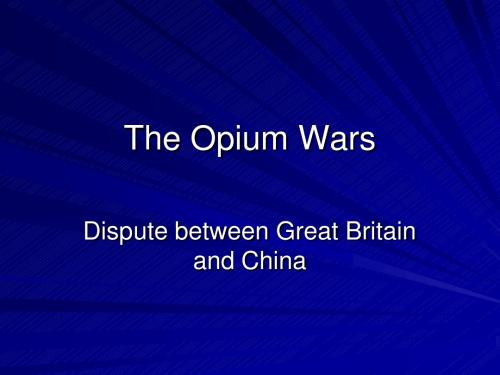
The Opium Wars Dispute between Great Britainand ChinaGrowth of Opium Trade Europeans bought silk, tea, porcelain, and spices from ChinaChinese would only trade goods for silver Drain on European financesOpium TradeOpium manufactured in China since 15th century for medical purposesOpium then mixed with tobacco so it could be smokedDutch were first to begin trade of opium English soon followedChinese government banned smoking and trade of opium in 1729 due to health and social issuesEnglish East India Company Held monopoly on production and export of opium in IndiaPeasant cultivators often coerced and paid in advance for cultivation of poppiesSold in Calcutta for a profit of 400%East India CompanyBuy tea on credit in CantonSell opium at auctions in Calcutta, India Then it was smuggled into China through India and Bengal1797 began direct trade of opium into ChinaChinese government had hard time controlling trade in SouthNapier AffairLord Napier tried to circumvent the Canton Trade laws to reinstitute East India’s monopolyGovernor of Macao closed trade with Britain September 2, 1834British resumed trade under old restrictionsFirst Opium War 1834 -1843 1838 Chinese instituted death penalty for native traffickers of opiumMarch 1839 –new commissioner to control opium trade –Lin ZexuLin imposed embargo on Britain unless they permanently ended the trade tradeMarch 27, 1839 –British Superintendent of Trade –Charles Elliot demanded all British subjects turn over opium to him Opium amounting to a year’s worth of trade was given to Commissioner Lin Trade resumed with Britain and no drugs were smuggledLin demanded British merchants to sign a bond promising not to deal opium under penalty of deathLin disposed of the opium –dissolving it in the oceanDid not realize the impact of this action!British merchants and government regarded this as destruction of private propertyResponded by sending warships, soldiers, and the British India Army into China June 1840Had superior military force –attacked coastal cities, defeated Qing forces easilyEnd of the WarBritish took Canton and sailed up the Yangtze RiverTook Tax Barges, cut revenue of imperial court of Beijing1842 Qing sued for peaceEnded with Treaty of NanjingReferred to as the Unequal Treaties –accepted 1843ChinaCeded Hong Kong to the BritishOpened ports to British –Canton, Amoy, Fuzhou, Ningbo, ShanghaiGreat Britain received21 million ounces of silverFixed tariffsExtraterritoriality for British citizens onChinese soilMost favored nation statusAllowed missionaries into interior of ChinaAllowed British merchants sphere of influence in and around British portsUnresolved IssuesStatus of opium trade with ChinaEquivalent American treaty forbade opium trade with ChinaHowever, both Americans and British were subject only to the legal trade of their consulsSecond Opium War 1856 -1860Also known as Arrow WarFollowed incident when Chinese bordered British registered, Chinese owned ship –the ArrowCrew was accused of piracy and smugglingWere arrestedBritish claimed ship was flying British flag and was protected under the Treaty of NanjingWar delayed by Taiping Rebellion and Indian MutinyBritish attacked Guangzhou one year later Aided by allies of United States, Russia, and FranceTreaty of Tientsin was created in July 1858 –was not ratified by China until 2 years laterHostilities broke out in 1859 when China refused the establishment of British Embassy in BeijingFighting erupted in Hong Kong and Beijing British burned the Summer and Old Summer Palace and looted the city1860 ratified the treaty at the Convention of PekingBritain, France, Russia and the United States would have the right to station legations in Beijing (a closed city at the time) Ten more Chinese ports would be opened for foreign trade, including Niuzhuang, Danshui, Hankou and NanjingThe right of foreign vessels including warships to navigate freely on the Yangtze River胰腺癌康复:/a/yixianaikangfu/The right of foreigners to travel in the internal regions of China for the purpose of travel, trade or missionary activitiesChina was to pay an indemnity to Britain and France in 2 million taels of silver respectively, and compensation to British merchants in 2 million taels of silver.The Chinese are to be banned from referring to Westerners by the character "yi" (barbarian).Legalized the import of Opium。
《中英鸦片战争》课件
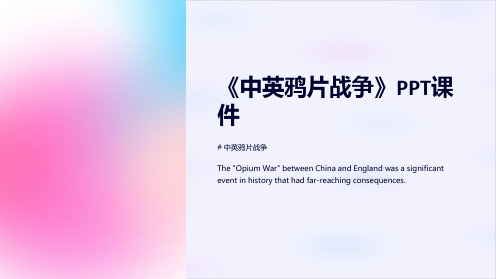
四、总结
4.1 鸦片战争的历史地位
鸦片战争是中国近代史上的一个重要事件,标志着中国与西方各种力量的交流与碰撞。
4.2 鸦片战争的启示
鸦片战争为中国人民增强了对国家独立和自主发展的意识,激发了反抗外来侵略的斗中国首都北京,烧毁圆明园。
- 签订《天津条约》和《北京条约》:中国再次割让领土,并进一步开放港口和 城市。
三、战争的影响
3.1 政治影响
- 中英关系的变化:中国 沦为半殖民地,英国在中 国取得更多特权。
- 中国政治体制的变革: 清朝王朝进一步衰落,中 国的现代化改革开始。
《中英鸦片战争》PPT课 件
# 中英鸦片战争
The "Opium War" between China and England was a significant event in history that had far-reaching consequences.
一、前言
1.1 什么是鸦片战争
二、战争的过程
1
2.1 第一次鸦片战争(1839-1842)
- 鸦片战争的起因:中国反对鸦片贸易,毁毒品,并禁止进口鸦片。
- 中英战争的过程:英军进攻中国沿海城市,中国军队不敌。
- 签订《南京条约》:中国割让香港,开放多个港口给英国贸易。
2
2.2 第二次鸦片战争(1856-1860)
- 鸦片战争的导火线:中国军队扣押英商赴北京途中战船“大沽号”的官员。
The Opium War was a series of arm ed conflicts that occurred between China and England in the 19th century.
鸦片战争英文
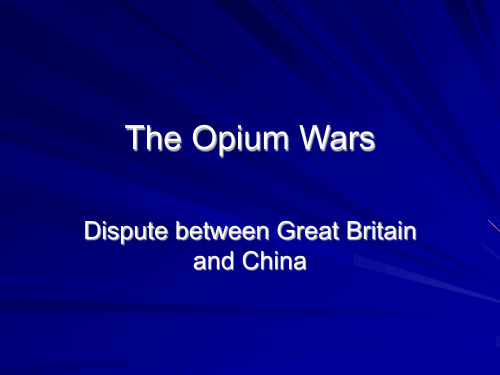
End of the War
British took Canton and sailed up the Yangtze River Took Tax Barges, cut revenue of imperial court of Beijing 1842 Qing sued for peace Ended with Treaty of Nanjing
First Opium War
Lin demanded British merchants to sign a bond promising not to deal opium under penalty of death Lin disposed of the opium – dissolving it in the ocean Did not realize the impact of this action!
Napier Affair
Lord Napier tried to circumvent the Canton Trade laws to reinstitute East India’s monopoly Governor of Macao closed trade with Britain September 2, 1834 British resumed trade under old restrictions
English East India Company
Held monopoly on production and export of opium in India Peasant cultivators often coerced and paid in advance for cultivation of poppies Sold in Calcutta for a profit of 400%
第1课 鸦片战争 课件(34张)

1939年6月3日至25日,林则徐亲临虎门, 督率官兵工役,先由挖池灌水,撒盐成卤, 然后把所有箱内烟土,投入卤中,泡浸半 日;再将烧透石灰抛下,水池顷刻沸腾。 多名工作人员用铁锄、木耙来回翻搅池水, 直至尽化。等到退潮时开启涵洞送进大海。
处理鸦片
挖了两个纵横15丈的大池,池底平铺石板。
。……其初不过纨狰子弟,习为浮靡,尚知敛 戢……嗣后
,置买烟具,为市日中。
——黄爵滋《请严塞漏卮以培国本折》
瘦骨嶙峋的吸食者
材料二:一位英国人也说:“‘奴隶贸易’比起
‘鸦片贸易’来,都要算是仁慈的。……可是鸦片
贩子在
存在
以后,还
……”
——马克思《鸦片贸易史》
查禁鸦片
“迨流毒于天下,则为害甚巨,法当从严。若犹泄泄视之,是使数十年后, 中原几无可以御敌之兵,且无可以充饷之银。”
第一单元 中国开始沦为半殖民地半封建社会
第1课 近代中国的开端:鸦片战争 (The Opium War)
2021年全国两会热议,全国人大代表、广东国鼎律师事务所主任朱列玉将提 交建议,将“一次吸毒,终身禁演”写进法律法规中,整治明星涉毒乱象。 公安部作出回应:国家禁毒办会同文化、新闻出版、广播电视等部门多次对 涉毒社会公众人物、演艺人员及其作品使用进行严格管理规范,出台相关处 罚措施。
274460
34580
1795-99
3868126
162739
79979
——严中平《中国近代经济史统计资料选辑》
出超:又称“贸易顺差”,指在一定时间 内一国的商品出口额高于进口额。 入超:又称“贸易逆差”,进口额高于出 口额。
1.图表反映中英贸易什么特点? 2.为什么会出现这种情况?
第42课 鸦片战争The First Opium War
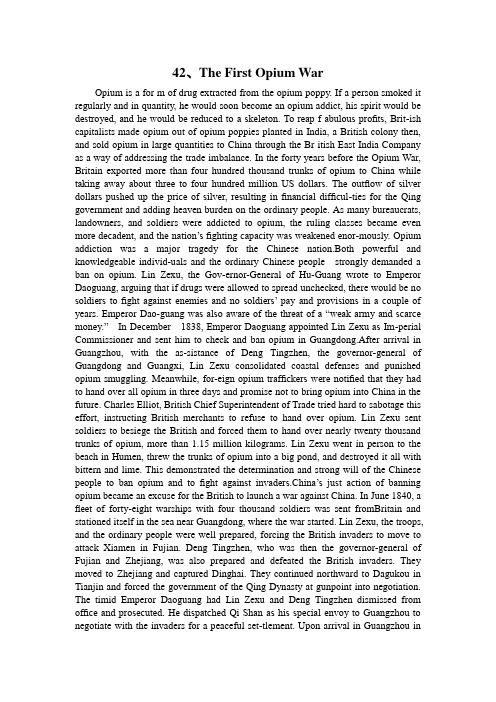
42、The First Opium WarOpium is a for m of drug extracted from the opium poppy. If a person smoked it regularly and in quantity, he would soon become an opium addict, his spirit would be destroyed, and he would be reduced to a skeleton. To reap f abulous profits, Brit-ish capitalists made opium out of opium poppies planted in India, a British colony then, and sold opium in large quantities to China through the Br itish East India Company as a way of addressing the trade imbalance. In the forty years before the Opium War, Britain exported more than four hundred thousand trunks of opium to China while taking away about three to four hundred million US dollars. The outflow of silver dollars pushed up the price of silver, resulting in financial difficul-ties for the Qing government and adding heaven burden on the ordinary people. As many bureaucrats, landowners, and soldiers were addicted to opium, the ruling classes became even more decadent, and the nation’s fighting capacity was weakened enor-mously. Opium addiction was a major tragedy for the Chinese nation.Both powerful and knowledgeable individ-uals and the ordinary Chinese people strongly demanded a ban on opium. Lin Zexu, the Gov-ernor-General of Hu-Guang wrote to Emperor Daoguang, arguing that if drugs were allowed to spread unchecked, there would be no soldiers to fight against enemies and no soldiers’ pay and provisions in a couple of years. Emperor Dao-guang was also aware of the threat of a “weak army and scarce money.” In December 1838, Emperor Daoguang appointed Lin Zexu as Im-perial Commissioner and sent him to check and ban opium in Guangdong.After arrival in Guangzhou, with the as-sistance of Deng Tingzhen, the governor-general of Guangdong and Guangxi, Lin Zexu consolidated coastal defenses and punished opium smuggling. Meanwhile, for-e ign opium traffickers were notified that they had to hand over all opium in three days and promise not to bring opium into China in the future. Charles Elliot, British Chief Superintendent of Trade tried hard to sabotage this effort, instructing British merchants to refuse to hand over opium. Lin Zexu sent soldiers to besiege the British and forced them to hand over nearly twenty thousand trunks of opium, more than 1.15 million kilograms. Lin Zexu went in person to the beach in Humen, threw the trunks of opium into a big pond, and destroyed it all with bittern and lime. This demonstrated the determination and strong will of the Chinese people to ban opium and to fight against invaders.China’s just action of banning opium became an excuse for the British to launch a war against China. In June 1840, a fleet of forty-eight warships with four thousand soldiers was sent fromBritain and stationed itself in the sea near Guangdong, where the war started. Lin Zexu, the troops, and the ordinary people were well prepared, forcing the British invaders to move to attack Xiamen in Fujian. Deng Tingzhen, who was then the governor-general of Fujian and Zhejiang, was also prepared and defeated the British invaders. They moved to Zhejiang and captured Dinghai. They continued northward to Dagukou in Tianjin and forced the government of the Qing Dynasty at gunpoint into negotiation. The timid Emperor Daoguang had Lin Zexu and Deng Tingzhen dismissed from office and prosecuted. He dispatched Qi Shan as his special envoy to Guangzhou to negotiate with the invaders for a peaceful set-tlement. Upon arrival in Guangzhou inNovember 1840, Qi Shan withdrew the defense installation and dispersed the armed masses. He signed an agreement with the British invaders, promising to cede Hong Kong and paying an indemnity of six million dollars. Humiliated, Emperor Daoguang sent his nephew Yi Shan to preside over military affairs in Guangzhou and fight with the British invaders again.Yi Shan indulged himself in various pleasures and made merry day and night after his arrival in Guangzhou. He withdrew all the Qing troops, which were twenty times more than the British to the city area, leaving no coastal defense. In 1841, be-fore the arrival of Yi Shan in Guangzhou, the British attacked Humen once again. Guan Tianpei, naval commander of Guangdong, put up an indomitable resistance with his soldiers, but Qi Shan only sued for peace and refused to send reinforcements. Under the circumstances of no relief troops, Guan Tianpei kept up the defense and even fired gun s himself at the enemy. When the British soldiers entered the fort, he fought hardwith just a knife and died heroically, while Yi Shan loitered in the city after arr iving in Guangzhou and surrendered immediately with a white flag when the British fired guns at the city. British invaders burned, killed, and looted wherever they went in Guangzhou, while the Guangzhou people fought bravely against the invaders. On May 30, 1841, some British soldiers went to the northern suburbs of Guangzhou and were surrounded by hundreds of people in Sanyuanli where they had seized the Sifang fort. Viscount Hugh Gough, Field Marshal of the British troops made a sally. The Guangzhou residents fought and retreated, luring the enemy to Niulangang. At the sound of a gong, seven to eight thousand people who had remained hidden suddenly came out and fought with the enemy with knives, spears, and spades. It was pouring quite heavily at the time, and the gunpowder of the British got drenched and the guns and canons could not fire. The Guangzhou people rallied their strength and fought on even more bravely. Some British soldiers staggering along with difficulty in their high boots in the muddy field were captured, some were killed, and some knelt down to beg for mercy. The British army asked the local authority of Guangzhou for help. Yi Shan sent his men to dismiss the people. This Sanyuanli resistance struggle against the Br itish displayed the heroic spirit of the Chinese people.In the autumn of 1841, Xiamen was seized by the British troops and Dinghai was once again under attack. Ge Yunfei, the Dinghai zongbing (military governor) staged a heroic resistance against the invaders and was shot to death. Dinghai and Ningbo were captured one afterthe other. Farmers in Ningbo organized a Hei Shui Dang and killed many British soldiers. In 1842, the British pushed their way into Wusong, gateway to the mouth of the Yangtze River. Chen Huacheng, the Jiang- nan Military Governor, aged almost seventy at the time, remained at the fort. Although severely wounded, he fought bravely and eventually died. Thereafter, the British attacked Zhenjiang where they suffered heavy losses.In August 1842, the British warships came to Nanjing along the Yangtze River. Representa-tives of the two countries negotiated for peace in Nanjing. The British invaders forced the repre-sentative of the Qing government to sign the first unequal treaty of China—the Treaty of Nanjing. The main drift of the treaty was that Hong Kong was to be ceded to Britain, twenty-one million US dollars was to be paid as indemnity to the British, the five cities of Guangzhou (Canton), Xiamen (Amoy),Fuzhou (Foochow-fu), Ningbo (Ningpo), and Shanghai were to be opened as ports to the British for the purpose of carrying on their mercantile pursuits, and tariff of export and import customs on British merchants were to be discussed with the British. In the following year,。
鸦片战争[英文]
![鸦片战争[英文]](https://img.taocdn.com/s3/m/9d28af2a87c24028915fc3bb.png)
2nd opium war in 1856
lasted for two years and ended with the humiliating Treaty of Tientsin
~ legalized opium in China
Conclusions…
1.) Fall of the last Chinese dynasty and the rise of the Communist party 2.) China is broken into different spheres of influence 3.) Boxer Rebellion and Taiping Rebellion –attempts to rid China of foreign dominance 4.) By 1906, China was producing 35,000 tons of opium per year; 76% of global opium production
Opium Wars: Great Britain vs. China
What caused the Wars?
Early 17th century England was rapidly growing a taste for tea which was imported from China
England however had nothing to trade with China
China’s Response
The Chinese dynasty was against opium consumption and had made it illegal to possess since 1729
鸦片战争(双语版)课件
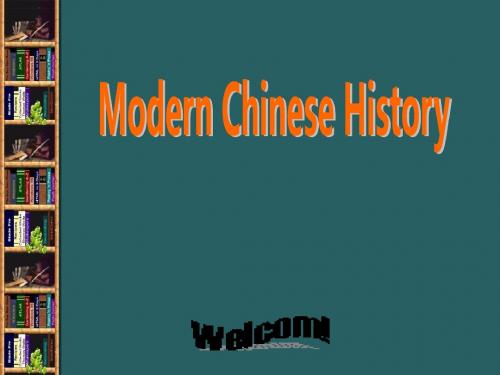
Contents of the Treaty of Nanjing
Hong kong was surrendered to the British
Chinese government paid 21 million dollars as war indemnity The opening of Guangzhou,Fuzhou,Xiamen, Ninbo and Shanghai ports for trade
Victor .Hugo
“…in our minds,Chinese are barbarous But you see what the civilized did to the barbarous”
The Opium War
1840-1842
Beautiful red flower
poppy
“Unilaterally most-favored-nation”
The British could build houses and settlements at trading ports .
In hopes of also gaining some special rights, invaders from the United States and France respectively forced the Qing government to sign the Treaty of Wangxia and the Treaty of Wangbu in July and October 1844. This was the end of the first Opium War.
The import tax of the British goods had to be agreed by compromise between China and British, and it was called“compromised tax”
鸦片战争PPT
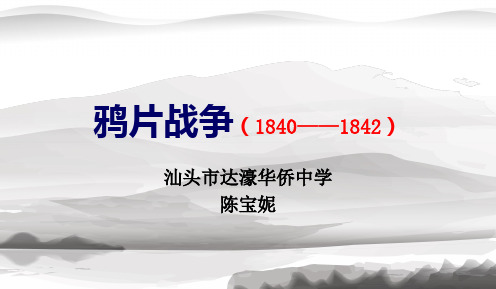
冲击:鸦片战争
反应:
1、经济:小农经济开始瓦解,被迫卷入资本主义世 界市场,(列强侵华以商品输出为主) 2、政治:各地农民起义 3、思想:林则徐、魏源等人提出的“开眼看世界”、 “师夷长技以制夷”
A、历史观点和历史结论
B历、史历事史实是观指点对和历历史史人解物释或事件的客观叙述,不带任何功能性 C(、或历作史用)叙定述位和,历即史“解是释什么”的问题。 D历、史历解史释必解须释对和历历史史人结物论或事件作出主要的较准确的功能性定
位,即“有什么用”的问题。
历史观点不仅要对历史人物或事件做出准确的功能性定位及定 性,更带有强烈的主观评判色彩,即“是什么性质,有何积极 和消极影响”的问题
1894年前
16.02
8.23(51.94%) 7.7(48.06%)
A.中国茶叶发展仍然非常缓慢 B.中国茶叶生产已经普遍使用机器生产 C.茶叶成为近代中国最主要的出口商品 D.中国茶叶业对世界市场的依赖逐渐增强
【解析】根据茶叶总销售量变化可知茶叶发展速度非常快,故A项错误;材料无法看出茶叶生产是否普遍使用机 器,故B项错误;仅有茶叶出口情况无法得出茶叶成为近代中国最主要的出口商品,故C项错误;从茶叶销售情况 看,出口量所占比重逐渐增大,到1894年时出口比重已超过内销,反映出茶叶业对世界市场的依赖逐渐增强,故 D项正确。
• ——2012年12月16日第一届凤凰财经峰会上厉以宁《十八大后的十年》的演讲
鸦片战争前中英两国对比:
中国
英国
经济 小农经济为主导,出现资本
主义萌芽,商品经济的发展
仍受到重农抑商、闭关锁国
等政策的影响。
工业革命提高了社会生产力, 在自由主义思想的指导下, 积极扩展海外市场,18世纪 下半叶,确立海上霸权。
八年级历史上册 第1课 中英鸦片战争课件
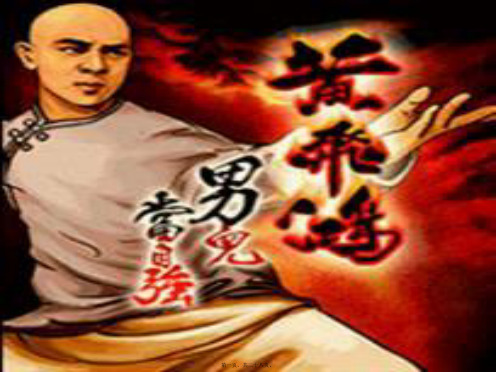
第十七页,共二十八页。
中英《南京条约(tiáoyuē)》的主要内容
破坏了中国(zhōnɡ ɡuó)的领土主 权加重(jiāzhòng)了人民的负担
打开了中国沿海门户 中国开始丧失关税自主权
第十八页,共二十八页。
鸦片战争后中国第一批不平等(píngděng)条约
第二十一页,共二十八页。
? 中国(zhōnɡ ɡuó)为什么在鸦片战争中战败
政治腐败,经济落后,科技落后(luò hòu),军事落后,
指挥失当… …
社会制度 根本原因:
(shèhuìzhìdù)
落后
落后就要挨打
2021/12/9
第二十二页,共二十八页。
赛一赛
看谁最利害
(lìhài)
A 1、到广东领导禁烟运动(yùndòng)的大臣是( )
----《义律致巴麦尊私人机密件》
第十页,共二十八页。
鸦片战争爆发(bàofā)的原因(得出结论):
虎门销烟
(hǔ mén xiāo
打yān开) 市场,谋取暴利
——直接 原 (zhíjiē) 因——根本原因
第十一页,共二十八页。
1840年6月,英国军舰(jūnjiàn)40多艘 驶进广东海面,封锁珠江口,进行挑 衅,鸦片战争开始。
第十四页,共二十八页。
《南京条约》主要内容
时时间间(s:híji1ān8):421年842年
割香港岛给英国(yīnɡ
ɡuó)
赔款2100万银元
内 开放广州、厦门、福州 容 、宁波、上海五处为通
(nèi 商口岸
rón g)
英商进出口货物的关税 ,中国需同英国商定
广州
2021/12/9
第十五页,共二十八页。
《鸦片战争》PPT优质课件
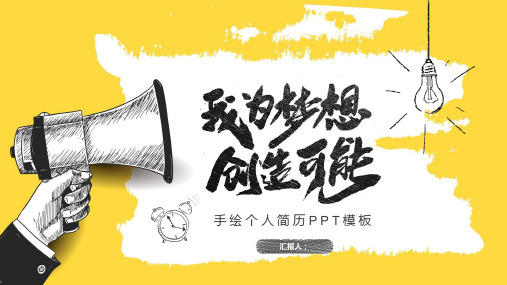
汇报完毕,谢谢大家!
2029年11月23日
2000-2005
点击输入您的文字内容或复制粘贴具体文本、用简明扼要的文字说明此项内容,精准的词汇表达胜过长篇大论的文字表述……
2005-2020
点击输入您的文字内容或复制粘贴具体文本、用简明扼要的文字说明此项内容,精准的词汇表达胜过长篇大论的文字表述……
2020-2025
点击输入您的文字内容或复制粘贴具体文本、用简明扼要的文字说明此项内容,精准的词汇表达胜过长篇大论的文字表述……
请替换文字内容,点击添加相关标题文字
优秀业绩展示
此处添加详细文本描述,建议与标题相关并符合整体语言风格,语言描述尽量简洁生动。
此处添加详细文本描述,建议与标题相关并符合整体语言风格,语言描述尽量简洁生动。
此处添加详细文本描述,建议与标题相关并符合整体语言风格,语言描述尽量简洁生动。
此处添加详细文本描述,建议与标题相关并符合整体语言风格,语言描述尽量简洁生动。
替换文字内容
请替换文字内容,修改文字内容,也可以直接复制你的内容到此。请替换文字内容,修改文字
替换文字内容
请替换文字内容,修改文字内容,也可以直接复制你的内容到此。请替换文字内容,修改文字
替换文字内容
THE PART THREE
业绩展示
优秀业绩展示
在此添加标题
单击添加详细文字说明,或复制文本黏贴自此右键只保留文字单击添加详细文字说明
一等奖学金
五一劳动模范
北京市十佳青年
杰出新人
个人兴趣爱好
替换文字内容
替换文字内容
初中历史八年级上册《第1课中英鸦片战争》PPT课件 (6)
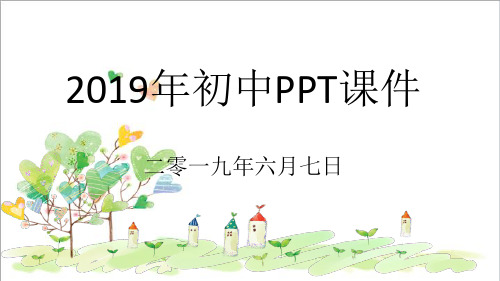
影响
• 1、中国社会性质的变化 • 2、中国领土完整和主权独立遭到破坏 • 3、中国社会矛盾的?
2019年初中PPT课件
二零一九年六月七日
中英鸦片战争
第一次鸦片战争
• 1、英国为什么向中国销售鸦片?(背景及目 的)
• 2、林则徐为什么要主张禁烟?(鸦片的危 害)
• 3、虎门销烟的时间、意义。(认识并正确 评价林则徐)
• 4、鸦片战争的时间、目的、性质、结果。 • 5、中英《南京条约》签订的时间、性质、
国近代“开眼看世界的第一人”。 • 主要事迹:虎门销烟
虎门销烟
• 时间:1839年6月 • 意义:打击了外国侵略者的嚣张气焰,鼓
舞了中国人民的斗志,显示了中国人反抗 外国侵略者的坚强意志。
鸦片战争
• 时间:1840年6月 • 目的:进一步打开中国大门,维护可耻的
鸦片贸易
中英《南京条约》
• 时间:1842年8月 • 内容:1、
英国向中国走私鸦片
• 目的:为了开辟市场,牟取暴利背景 • 1、英国商人先是向中国输出毛、棉织
品,从中国输入茶叶、丝织品等物。 2、在正当的中英贸易中,中国处于出 超地位。
鸦片带来的影响
• 1、中国大量白银外流 • 2、吏治更加腐败 • 3、军队的战斗力削弱
林则徐
• 福建人 • 主张“师敌之长技以制敌”,被后人誉为中
鸦片战争(双语版)课件

Contents of Supplement Treaties
“consular jurisdiction”
If the British broke the law at the trading ports, China was not allowed to deal with the case. It was the British consul who did so according to the Laws of Britain.
“Unilaterally most-favored-nation”
The British could build houses and settlements at trading ports .
In hopes of also gaining some special rights, invaders from the United States and France respectively forced the Qing government to sign the Treaty of Wangxia and the Treaty of Wangbu in July and October 1844. This was the end of the first Opium War.
black opium
Background Nation
Government
China
British
down-coming feudalism up-rising imperialism self-sufficient economy “workshop of the world” most powerful military in the world set up colony all over the world
- 1、下载文档前请自行甄别文档内容的完整性,平台不提供额外的编辑、内容补充、找答案等附加服务。
- 2、"仅部分预览"的文档,不可在线预览部分如存在完整性等问题,可反馈申请退款(可完整预览的文档不适用该条件!)。
- 3、如文档侵犯您的权益,请联系客服反馈,我们会尽快为您处理(人工客服工作时间:9:00-18:30)。
First Opium War
Lin demanded British merchants to sign a bond promising not to deal opium under penalty of death Lin disposed of the opium – dissolving it in the ocean Did not realize the impact of this action!
First Opium War
British merchants and government regarded this as destruction of private property Responded by sending warships, soldiers, and the British India Army into China June 1840 Had superior military force – attacked coastal cities, defeated Qing forces easily
– Ten more Chinese ports would be opened for foreign trade, including Niuzhuang, Danshui, Hankou and Nanjing
– The right of foreign vessels including warships to navigate freely on the Yangtze River
Treaty of Nanjing
Referred to as the Unequal Treaties – accepted 1843 China
– Ceded Hong Kong to the British – Opened ports to British – Canton, Amoy,
Fuzhou, Ningbo, Shanghai
– The Chinese are to be banned from referring to Westerners by the character "yi" (barbarian).
– Legalized the import of Opium
in and around British ports
Treaty of Nanjing
Unresolved Issues
– Status of opium trade with China – Equivalent American treaty forbade opium
trade with China – However, both Americans and British were
First Opium War 1834 - 1843
1838 Chinese instituted death penalty for native traffickers of opium March 1839 – new commissioner to control opium trade – Lin Zexu Lin imposed embargo on Britain unless they permanently ended the trade trade
End of the War
British took Canton and sailed up the Yangtze River Took Tax Barges, cut revenue of imperial court of Beijing 1842 Qing sued for peace Ended with Treaty of Nanjing
East India Company
Buy tea on credit in Canton Sell opium at auctions in Calcutta, India Then it was smuggled into China through India and Bengal 1797 began direct trade of opium into China Chinese government had hard time controlling trade
Treaty of Tientsin was created in July 1858 – was not ratified by China until 2 years later Hostilities broke out in 1859 when China refused the establishment of British Embassy in Beijing Fighting erupted in Hong Kong and Beijing
– Were arrested
Second Opium War
British claimed ship was flying British flag and was protected under the Treaty of Nanjing War delayed by Taiping Rebellion and Indian Mutiny British attacked Guangzhou one year later Aided by allies of United States, Russia, and France
Napier Affair
Lord Napier tried to circumvent the Canton Trade laws to reinstitute East India’s monopoly Governor of Macao closed trade with Britain September 2, 1834 British resumed trade under old restrictions
Treaty of Nanjing
Great Britain received
– 21 million ounces of silver – Fixed tariffs – Extraterritoriality for British citizens on
Chinese soil – Most favored nation status – Allowed missionaries into interior of China – Allowed British merchants sphere of influence
Opium Trade
Opium manufactured in China since 15th century for medical purposes Opium then mixed with tobacco so it could be smoked Dutch were first to begin trade of opium English soon followed Chinese government banned smoking and trade of opium in 1729 due to health and social issues
First Opium War
March 27, 1839 – British Superintendent of Trade – Charles Elliot demanded all British subjects turn over opium to him Opium amounting to a year’s worth of trade was given to Commissioner Lin Trade resumed with Britain and no drugs were smuggled
English East India Company
Held monopoly on production and export of opium in India Peasant cultivators often coerced and paid in advance for cultivation of poppies Sold in Calcutta for a profit of 400%
subject only to the legal trade of their consuls
Second Opium War 1856 - 1860
Also known as Arrow War Followed incident when Chinese bordered British registered, Chinese owned ship – the Arrow Crew was accused of piracy and smuggling
– British burned the Summer and Old Summer Palace and looted the city
Treaty of Tientsin
1860 ratified the treaty at the Convention of Peking
– Britain, France, Russia and the United States would have the right to station legations in Beijing (a closed city at the time)
Treaty of Tientsin
– The right of foreigners to travel in the internal regions of China for the purpose of travel, trade or missionary activities
